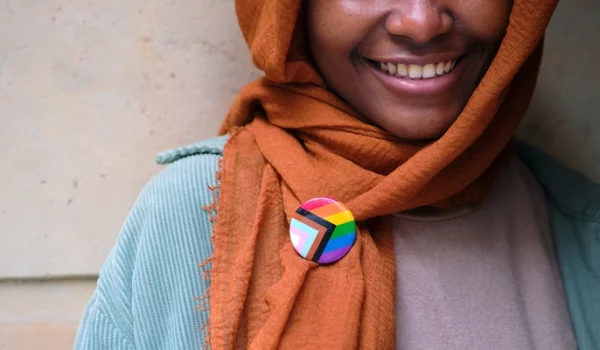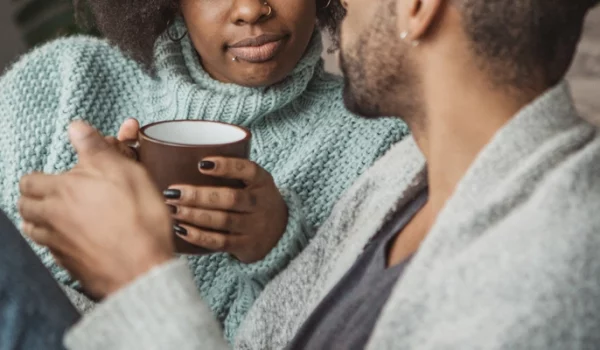-
By: health
-
July 12, 2017
Let’s talk about revenge porn
Whether it’s a screenshot of a sext, a Facebook message, or a Snapchat story meant for your partner’s eyes only, technology has made it easier than ever to share intimate moments with your boo. But what happens when those private pics are shared without permission? Recently Rob Kardashian made news for sharing explicit photos of his ex. What he did is called revenge porn. It’s the sharing of graphic images without consent as a way to get back at, embarrass, or assert power over someone—and it’s illegal in many states.
Revenge porn is too common and very wrong. Here’s how to protect against revenge porn, and some ways to take action if it happens to you.
Why is revenge porn harmful?
Everyone deserves basic respect and personal privacy—it doesn’t matter how open they are about their body or sexuality. Sharing images, texts, or video without someone’s permission, especially as a way to get back at or shame them, is a form of relationship abuse . It can have negative consequences for self-esteem, reputation, and even employment. We know all relationships have ups and downs, but resorting to revenge porn is never okay.
Good partners have a responsibility to build trust together, respect one another, and honor each other’s needs. If you and your boo are fighting, remember that there are healthier ways to manage emotions when the going gets rough. If you’re tempted to embarrass your partner by sending a mass text, try taking extra care of yourself, taking a break from seeing each other, and possibly seeking professional help.
Can I stop revenge porn?
Whether you’re seeing someone new or you’ve been together for a while, building trust is a key way to create healthy relationships. If your partner requests that you send graphic images or video, you always have the right to say no or suggest other ways to connect sexually . If you do decide to share sexy images, communicate your boundaries by deciding what you’re okay sharing with other people. Depending on your personal vibe, you might consider writing out a short commitment to one another that outlines what’s appropriate to share without permission. Here are a few ways to open up to one another about sexual consent . If you or your partner is under 18, there also might be legal stuff to take notice of in your state . Feeling stuck around other ways to build trust as a unit? Here are a few ideas .
If you’re having sex online—whether it be through Skype, FaceTime, email, or texting—there is no surefire guarantee that you’ll have complete privacy. But there are some ways to protect yourself digitally .
Even if you aren’t posting images of someone else without their consent, it’s still possible that you’re participating in revenge porn. Viewing or sharing images of someone else, whether it’s someone you know or someone you don’t (like a celebrity) without their consent continues the revenge porn trend. You can help stop revenge porn simply by not viewing or sharing non-consensual images. Another way to stop revenge porn is by requesting to have the images—whether of you or someone else—removed when you see them online .
What can I do if revenge porn happens to me?
If someone has shared images or video of you without your consent, here’s what you can do:
Know your rights. Because of the way U.S. copyright law works , you technically own your images and have the right to determine what happens to them. Thirty-eight states (and DC) now have laws regarding revenge porn. If you are interested in pursuing legal action, you can learn about the specific laws that apply in your state . If you want to help change your state’s law, get involved by contacting your legislator .
Keep a record. If someone has shared images of you online without your permission, do what you can to document what happened. Use the screenshot function on your phone or computer to capture the screen and show who has violated your privacy, how, and when. If you have a printer, use it to print out images and save the hard-copies in a safe place. Having this evidence as backup will help you later, if you decide to work with a lawyer, law enforcement, or court advocate.
Get the images taken down. Most social media sites do not allow nudity, and many now have policies safeguarding their users against revenge porn. Here is a guide for how to navigate the policies of different social media sites . Google has its own form to request removal from their search results . There are also professional services that can help you get images removed from the web completely.
Consider hiring a lawyer and/or involving law enforcement. Because the laws on revenge porn vary from state to state, working with a lawyer can help you sort out your options. Many lawyers specialize their practice in this area, and some can even help you for free . If you aren’t sure about speaking to a lawyer, here is some basic legal information about how a lawyer might be able to help you, how (if at all) to involve law enforcement, and the type of legal claims you might have.
You can also use the help of the authorities to document your case. As with some cases of sexual assault, not all law enforcement officers may be prepared to handle your case sensitively. Working with a lawyer can help protect you if you do decide to bring your case to the police. Here’s how to get started doing so . If fighting the case ends up costing you money (eg. legal fees, missed work days, or health care costs), you can hold the offender accountable for paying back those expenses.
Talk to someone you trust. Having your images or personal information shared without your consent can leave you feeling betrayed and alone. To help you get through it, stay connected to your loved ones. Whether it’s a friend, a parent, or a professional, connecting with someone you trust can give you the support you need—emotionally, logistically, or both. If you want to talk to someone anonymously, Loveisrespect.org has a special online chat and text message service available 24/7, every day of the year.
Whether you’re having sex online or in person, your personal safety and boundaries matter the most. If you’re tempted to leak someone’s photos without their consent, think twice. If your images are posted without your consent, there are steps you can take to protect yourself and your privacy. Never forget: consent is sexy, online and IRL.









Leave a comment